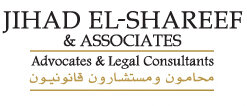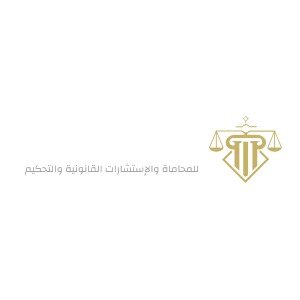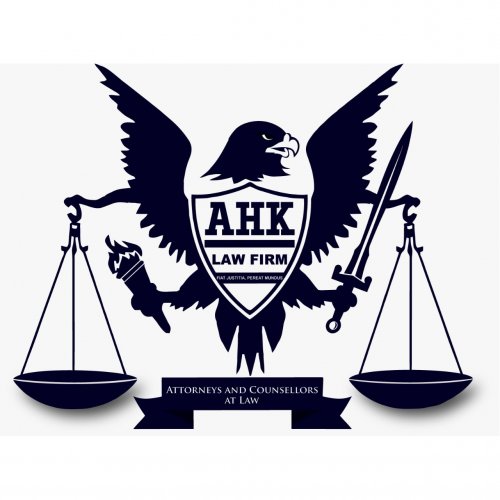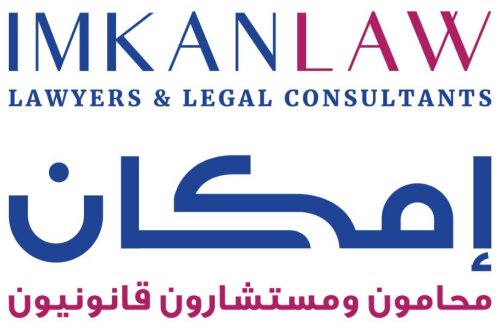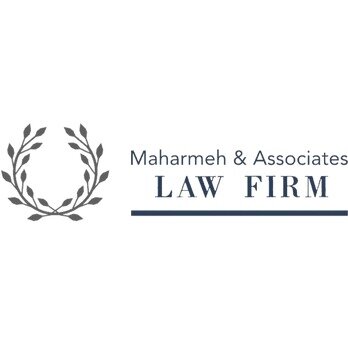Best Project Finance Lawyers in Hashemite Kingdom of Jordan
Share your needs with us, get contacted by law firms.
Free. Takes 2 min.
Or refine your search by selecting a city:
List of the best lawyers in Hashemite Kingdom of Jordan
About Project Finance Law in Hashemite Kingdom of Jordan
Project Finance in the Hashemite Kingdom of Jordan involves the financing of long-term infrastructure and industrial projects based on projected cash flows rather than the balance sheets of the project sponsors. This form of financing is commonly used for major public works and private sector initiatives such as power plants, water treatment facilities, transportation infrastructure, and renewable energy projects. The legal framework governing project finance is shaped by a mix of domestic legislation, public-private partnership (PPP) models, and regulatory policies that support foreign and local investment, risk allocation, and lender protection.
Why You May Need a Lawyer
Engaging a lawyer experienced in Project Finance in Jordan is crucial for navigating complex transactions and legal requirements. Common situations where legal help is required include:
- Structuring PPP agreements between government authorities and private companies
- Securing permits and approvals from relevant ministries or agencies
- Drafting and negotiating project contracts, including construction, supply, and offtake agreements
- Ensuring compliance with local laws, environmental regulations, and tax obligations
- Arranging security interests or collateral arrangements recognized under Jordanian law
- Advising on risk allocation and dispute resolution procedures
- Helping foreign investors understand local market entry requirements
- Facilitating financial closings with domestic or international lenders
Local Laws Overview
Jordan’s legal landscape for Project Finance is shaped by several key laws and regulations:
- The Public-Private Partnerships Law aims to facilitate collaboration between governmental bodies and private entities by establishing a clear framework for bidding, tendering, and managing PPP projects.
- The Companies Law sets out requirements for the establishment and operation of special purpose vehicles (SPVs) that are often used as project companies for finance arrangements.
- The Investment Law offers incentives, such as customs exemptions and tax reductions, for qualifying projects in strategic sectors.
- The Secured Transactions Law allows creditors to take and enforce security over movable assets, which is a critical component of finance structures.
- Sector-specific regulations, for example, in energy, water, and infrastructure, provide additional guidance on licensing, tariffs, and compliance.
- Environmental and zoning regulations must also be considered at early stages to avoid delays or liabilities.
Foreign and local lenders benefit from recognized legal protections for their interests, but full due diligence is needed to ensure enforceability of contracts and security arrangements, especially in the context of cross-border financings.
Frequently Asked Questions
What is Project Finance and how does it differ from traditional financing?
Project Finance is a method of funding where lenders primarily rely on the cash flow generated by the project itself for repayment, rather than on the creditworthiness of the project sponsors. In traditional financing, lenders often look to the company’s overall balance sheet for assurance.
What types of projects in Jordan commonly use Project Finance?
Commonly financed projects include power plants, renewable energy installations, water infrastructure, transportation developments, and large-scale industrial facilities.
Are there any specific laws governing Public-Private Partnerships in Jordan?
Yes, Jordan has a dedicated Public-Private Partnerships Law that sets out the framework for initiating and managing PPP projects, including requirements for transparency and competitive bidding processes.
Can foreign investors participate in Project Finance deals in Jordan?
Yes, foreign investors can participate and often play a major role, especially in sectors like energy. There are specific rules and incentives for foreign investment, but compliance with local law and partnership with Jordanian entities may be required in certain sectors.
What is an SPV and why is it used in Project Finance?
An SPV, or Special Purpose Vehicle, is a legal entity separate from its sponsors, created specifically to develop, own, and operate the project. It limits financial and legal risk exposure.
What types of security can lenders obtain in Jordan?
Lenders can take security over both moveable and immoveable assets, receivables, shares, and contractual rights, subject to proper registration and issuance of security documentation under Jordanian law.
Are there any tax incentives for Project Finance projects in Jordan?
Yes, the Investment Law provides tax exemptions and reductions for qualifying investments, particularly in energy, infrastructure, and industrial sectors.
How are disputes typically resolved in Project Finance agreements?
Many agreements include arbitration clauses, often specifying forums such as the International Chamber of Commerce or the International Centre for Settlement of Investment Disputes. Local courts may also have jurisdiction depending on the agreement.
How long does it take to obtain approvals for a Project Finance initiative?
The time frame varies depending on the nature of the project, sector, and involved government agencies. Complex projects may require several months for full approval and permitting.
What should I do if there is a breach of contract in a Project Finance arrangement?
Immediate consultation with a lawyer is advised. They can review the contracts, identify remedies, and initiate appropriate dispute resolution mechanisms, whether through negotiation, arbitration, or litigation.
Additional Resources
Several institutions and organizations in Jordan can provide guidance and support in Project Finance:
- Jordan Investment Commission - for information on investment incentives and project approvals
- Ministry of Energy and Mineral Resources - for projects related to power and energy
- Jordanian Banks Association - for information on local financing options and banking regulations
- Amman Chamber of Industry - for support in industrial project finance
- Jordan Chamber of Commerce - for networking and market entry information
- Jordanian Bar Association - for finding qualified legal practitioners in the field
Next Steps
If you are considering engaging in a Project Finance transaction in Jordan or have legal concerns regarding an ongoing or planned project, the following steps are recommended:
- Prepare all relevant documentation, including business plans, financial models, proposed contracts, and details of involved parties
- Consult with a lawyer who specializes in Project Finance and is familiar with Jordanian law and the specific sector of your project
- Engage with relevant government agencies early to understand regulatory and permitting requirements
- Assess the need for financial or technical advisors to complement your legal counsel
- Conduct comprehensive due diligence before committing to any binding agreements
Professional legal support can be invaluable in identifying potential risks, ensuring compliance, and increasing the likelihood of a successful project outcome. Begin your search for a qualified legal advisor or law firm with direct experience in Project Finance within Jordan.
Lawzana helps you find the best lawyers and law firms in Hashemite Kingdom of Jordan through a curated and pre-screened list of qualified legal professionals. Our platform offers rankings and detailed profiles of attorneys and law firms, allowing you to compare based on practice areas, including Project Finance, experience, and client feedback.
Each profile includes a description of the firm's areas of practice, client reviews, team members and partners, year of establishment, spoken languages, office locations, contact information, social media presence, and any published articles or resources. Most firms on our platform speak English and are experienced in both local and international legal matters.
Get a quote from top-rated law firms in Hashemite Kingdom of Jordan — quickly, securely, and without unnecessary hassle.
Disclaimer:
The information provided on this page is for general informational purposes only and does not constitute legal advice. While we strive to ensure the accuracy and relevance of the content, legal information may change over time, and interpretations of the law can vary. You should always consult with a qualified legal professional for advice specific to your situation.
We disclaim all liability for actions taken or not taken based on the content of this page. If you believe any information is incorrect or outdated, please contact us, and we will review and update it where appropriate.
Browse project finance law firms by city in Hashemite Kingdom of Jordan
Refine your search by selecting a city.




